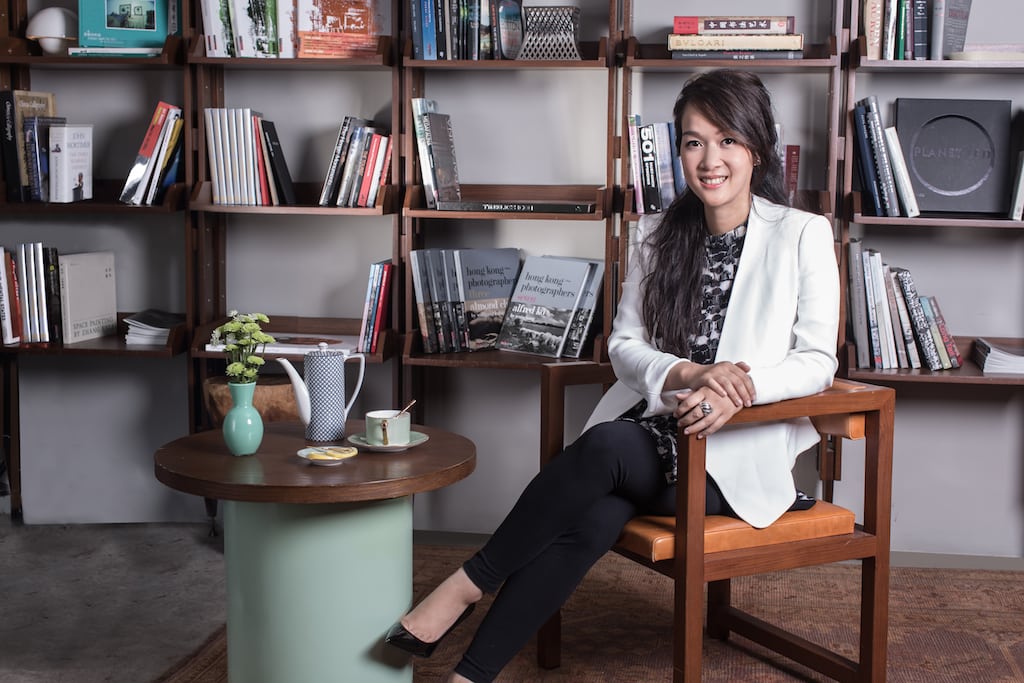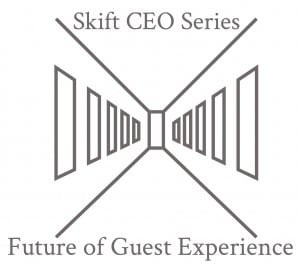Skift Take
In a luxury brand, it's less about what technology can do for guests and more about what technology can do for staff who can use it to provide more personalized, smoother service to the customer.
Editor’s Note: This interview is part of Skift’s CEO interview series. This particular series is with hospitality CEOs talking about the Future of the Guest Experience and the evolving expectations and demands of hotel guests. Check out all the interviews as they come out here. Also, enjoy the previous series on the Future of Travel Booking, with online travel CEOs.
Hong Kong’s luxury hotel collection Rosewood Hotel Group is embarking on an ambitious expansion strategy through 2015 with plans to nearly double its inventory of 54 hotels across 17 countries. There are nearly 40 new hotels currently under development.
In addition to the Rosewood brand, the collection also includes hotels under the business-oriented New World and design-drive Pentahotels brands. The collection also includes some iconic hotels around the world including The Carlyle in New York, Hotel de Crillon in Paris, and Rosewood Mansion on Turtle Creek in Dallas.
Rosewood Hotel Group CEO Sonia Cheng was one of the few female chief executives in the hospitality industry. Prior to joining the group, Cheng specialized in real estate investments while working with a major international investment bank and American private equity firm.
Skift recently spoke to Cheng about the evolution of the luxury guest experience, how her hotel group is attempting to surpass their loftiest expectations, and the importance in hiring in order to executive on philosophy. An edited version of our interview can be read below:
Skift: What is the biggest challenge that you’re facing to improve the guest experience today?
Sonia Cheng: As a luxury brand, we pride ourselves on creating really personal and authentic experiences for guests. At the luxury level, travelers nowadays are much more sophisticated. They travel around the world and experience a lot of different hotels and experiences.
I think what they want is really intuitive and engaging service rather than the expected kind of hotel experience. That is what Rosewood is going for at the moment and it’s not easy. It’s about being intuitive and being able to anticipate what guests are looking for once they walk through the hotel or we pick them up from the airport. Our philosophy is that there are small details that will entice the guest and surprise and delight them in different ways. This is a differentiating element, but it is not an easy thing to do because you need to make sure that your team is able to execute on that philosophy.
Skift: What’s one unexpected shift that you’ve seen in guest expectations or demands in the last five or ten years?
Cheng: It’s not unexpected but travelers are more sophisticated and they are no longer looking for physical extravagance at the luxury level. They’re looking more for a personal experience and someone attending to every detail of their stay. That is what they’re expecting walking into a luxury hotel right now.
Skift: What role does technology play in improving the guest experience? Is consumer-facing or back-technology more important or effective in improving the experience?
Cheng: I know throughout the industry that there’s a lot of consumer-facing technology that’s put into the room or throughout the hotel, but I think we have to be careful about how much technology we put in front of the guest. Not that they’re not technologically savvy, but the key is to make sure that the technology is practical, functional, and easy to use.
The worst scenario would be to have technology in the room that the customer just doesn’t know how to use or it’s too difficult to comprehend. They end up getting frustrated and having to call guest services to fix it.
In terms of customer-facing technology, we just have to be careful to make sure that it’s very simple and easy to use and in places where it is really necessary rather than there just because it’s a trend.
For us, back-end technology is more important in terms of enhancing the guest experience. Making sure that we know guest feedback or questions instantly and immediately would really help enhance the experience that particular guest.
For example, if a guest walks into one of our restaurants and for the second time orders a café latte then we should be able to input that into our technology so all of our associates are aware when this guest walks into a restaurant that they would love a café latte. That is what we are striving to achieve. It definitely isn’t expected and it’s very intuitive and it goes a long way, in my opinion, in really enhancing out customer relationship management.
Skift: You talked a lot about the role that your associates play in improving the guest experience. How has the hiring experience changed or evolved to match these changes in the guest expectations?
Cheng: It starts with the people you hire. Throughout our interview process, we are looking for people who are, most importantly, passionate about the hotel industry. You can see in their eyes that they really enjoy this industry and servicing our guests.
Practical experience, of course, is important but at the end of the day it’s about what they genuinely like to do and what they’re passionate about. We have interviews in different settings. For example, we take interviewees to a coffee shop or more relaxed environment than a conference room to try to gauge their real personality.
Like any of the hotel groups, we have a very solid training program but I think that intuition and being intuitive is a core piece that our group really focuses on. We have training programs where we explain our philosophy to them, have role-plays, and get out of the hotel to experience different venues. It’s a more creative training process.
Skift: What are your views on the increase in hotel fees that are being levied against guests? How do you handle fees at a luxury brand?
Cheng: It is a global trend that Wi-Fi is going to be complementary and eventually all hotels will have to comp it. For things like early check-in or late check-out, it’s going to be an all-in fee. If, on the luxury level, we are focusing on such small costs then it just annoys guests. If you want to create a holistic experience, increase the rates to reflect the luxury service that you are providing rather than break it down and charge the guest on separate items. That will definitely drive guests away at the luxury level.
Skift: What role has content or social media played in changing Rosewood’s conversations with its customers?
Cheng: Social media is definitely very important. We have been continuing to enhance our social media platforms, particularly using them to communicate with our guests, whether we have a promotion or just something happening in the hotels. It is a very effective and efficient platform in comparison to traditional literature or TV.
We have developed a program called Rosewood Curator, in which we invite certain influential characters and personalities to be our Rosewood Curator for a certain city. They provide advice and hidden secrets about that particular city that are then posted on the website and channeled through social media. It’s a different way of advertising and marketing your hotel.
Skift: Is there anything else about the guest experience that keeps you up at night?
Cheng: Our new focus is around creating authentic experiences in our food and beverage. We don’t want to have a hotel restaurant anymore; we want it to be a gathering place for locals. That started with our new Rosewood hotel in London where we created an amazing bar that is a very popular destination among local Londoners. It really creates a great atmosphere fore the hotel. We’re focusing on creating things not just for the guest, but really for the local community.
Have a confidential tip for Skift? Get in touch
Tags: ceo interviews, foge, hong kong
Photo credit: Rosewood Hotel Group CEO Sonia Cheng. Rosewood Hotel Group

